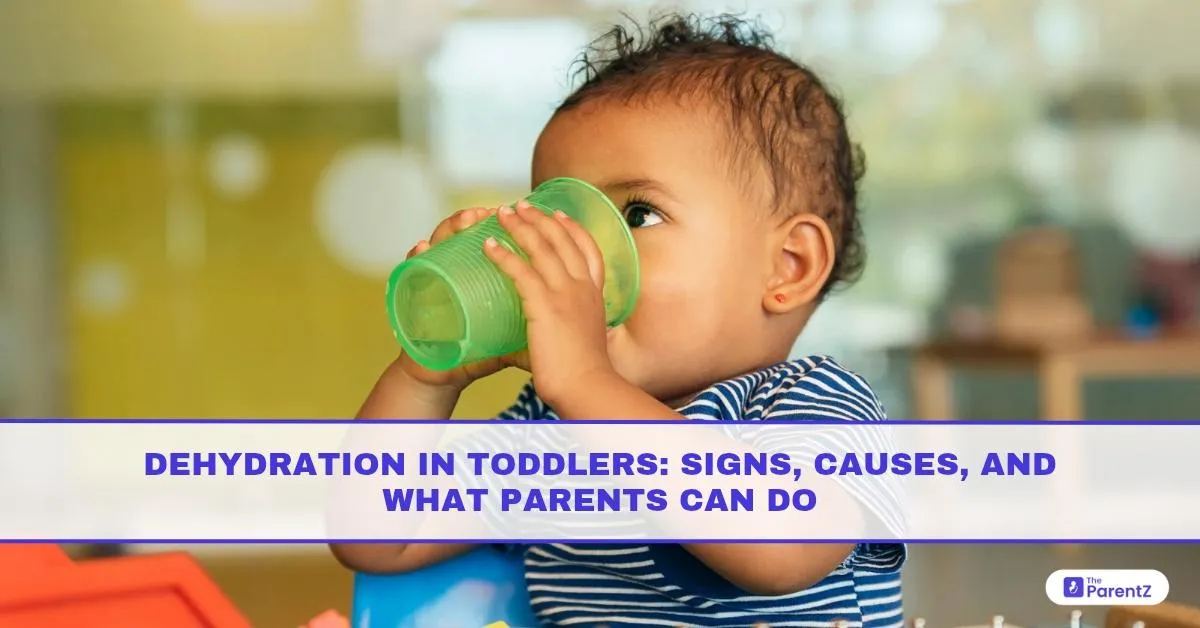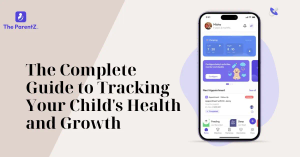A Parent’s Watchful Eye: Why Dehydration in Toddlers Matters
Toddlers are bundles of energy, curious, active, and always on the move. But in all the excitement of play, meals, and tantrums, one critical aspect of their health can quietly become a concern: hydration.
Dehydration in toddlers is more common than many parents realize. Because their bodies are smaller and their water reserves are lower than adults’, toddlers can lose fluids quickly, especially when sick, overheated, or not drinking enough.
But here’s the good news: with the proper knowledge and timely care, dehydration is easily manageable. This article will help you understand what to watch out for, why it happens, and what you can do as a parent to keep your little one safe and well-hydrated.
What Is Dehydration?
Dehydration occurs when the body loses more fluids than it takes in. For toddlers, even mild dehydration can escalate quickly, affecting energy, mood, and health.
Toddlers lose fluids through:
- Sweat (especially in hot weather or while playing)
- Urine
- Vomiting or diarrhea during illness
- Fever
- Not drinking enough fluids
Recognising the Signs: What Dehydration Looks Like in Toddlers
Toddlers can’t always express thirst or discomfort clearly, so it’s important to know the early signs.
Mild to Moderate Dehydration
- Dry lips and mouth
- Fewer wet nappies (less than 4 in 24 hours) or dark yellow urine
- Sunken eyes or cheeks
- Less active or unusually sleepy
- Fussiness or irritability
- Tearless crying
- Cool or pale skin
- Decreased appetite
Real Parent Insight:
“I thought my son was just tired after a day out in the park. But when he didn’t pee for hours and started getting cranky, I realized something wasn’t right. Our pediatrician confirmed he was mildly dehydrated.” – Anonymous mother from Bengaluru
Severe Dehydration (Medical Emergency)
- Lethargy or unresponsiveness
- Fast breathing or rapid heart rate
- Very dry mouth
- No urine output for 8+ hours
- Cold hands and feet
- Sunken soft spot (fontanelle) in babies
- Skin that stays “tented” when pinched
- Seizures (in extreme cases)
If you notice these signs, seek medical attention immediately.
What Causes Dehydration in Toddlers?
There are several common triggers:
1. Illnesses
Fevers, vomiting, and diarrhea can lead to rapid fluid loss. According to a study in the Journal of Pediatric Gastroenterology and Nutrition, over 70% of hospitalizations for toddler dehydration are due to gastroenteritis (tummy infections).
2. Hot Weather or Overheating
In India’s long summer months, dehydration spikes. Toddlers are more sensitive to heat and may not drink unless reminded to do so. Their sweating mechanism is also immature, so their bodies struggle to regulate their body temperature.
3. Low Fluid Intake
Busy toddlers may simply forget to drink or become picky about what they drink. A child who is offered juice or milk instead of water may not hydrate well.
4. Teething or Mouth Sores
When teething or unwell, toddlers may avoid drinking due to discomfort, which increases the risk of dehydration.
5. Excessive Activity
Running, jumping, and active play increase fluid loss. Without regular fluid breaks, toddlers can become dehydrated even indoors.
What Parents Can Do: Home Care and Prevention
Thankfully, most cases of mild dehydration can be managed at home with attentive care.
1. Offer Fluids Frequently
Don’t wait for your child to ask. Encourage small sips of plain water, coconut water, or oral rehydration solutions (ORS) throughout the day.
Medical Tip:
WHO-recommended ORS packets are available at most pharmacies and are ideal for replacing lost salts and fluids. Avoid sugary drinks or sodas—they can worsen diarrhea and upset the stomach further.
2. Continue Feeding During Illness
If your toddler has diarrhea or vomiting, continue giving food in small amounts and don’t stop breastfeeding or milk unless advised. Fluids should be offered in small, frequent sips every few minutes.
3. Use a Fun Bottle or Cup
Let your toddler pick a colorful bottle, use a straw, or turn water drinking into a game. Sometimes, a little creativity goes a long way in keeping them hydrated.
4. Include High-Water Foods
Fruits like watermelon, oranges, cucumber, and grapes are rich in water. Soups, curd, and dal also help maintain hydration.
5. Keep Them Cool
Dress your toddler in breathable cotton clothes, especially in summer. Avoid being out in the sun for long periods and offer fluids before, during, and after outdoor play.
When to See a Doctor
It’s important to know when home care isn’t enough. Visit your pediatrician or emergency care if:
- Your toddler is refusing fluids completely
- Vomiting is persistent and severe
- Diarrhea continues beyond a day
- There are signs of moderate to severe dehydration
- Fever is high and not subsiding
Pediatric Insight:
Dr. Kunal Agarwal, pediatrician at Delhi’s Sir Ganga Ram Hospital, explains:
“Toddlers don’t have large fluid reserves. Even a short bout of vomiting can affect them significantly. Parents should focus on early signs and not wait for things to worsen.”
Myths and Facts About Toddler Dehydration
Myth 1: “If my child is drinking juice, they’re hydrated.”
Fact: Juices are not a substitute for water or ORS. Too much sugar can cause more harm than good.
Myth 2: “My child is urinating once or twice, so it’s fine.”
Fact: Toddlers should ideally have 4-5 wet nappies or toilet trips a day. Anything less can be a red flag.
Myth 3: “Dehydration only happens when they’re sick.”
Fact: Even healthy toddlers can get dehydrated during summer or after a busy day if they aren’t drinking enough.
Final Thoughts: Keep the Fluids Flowing, the Smiles Growing
Dehydration in toddlers is preventable, and spotting the signs early can save a lot of discomfort for your child. As parents, your best tools are observation, encouragement, and timely action. Establish a daily hydration routine, incorporate plenty of fluid-rich foods, and remain hydrated during periods of illness or high temperatures. And most importantly, listen to your instincts. You know your child best.
A well-hydrated toddler is a happy, active, and healthier one. Keep the water flowing and those tiny smiles.





Be the first one to comment on this story.